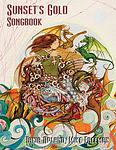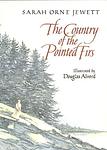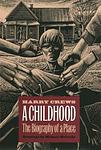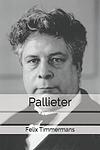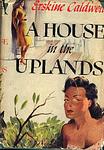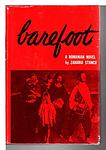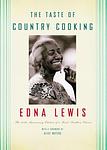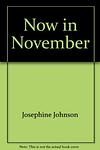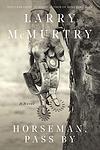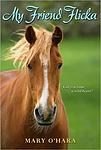The Greatest "Farm life" Books of All Time
Click to learn how this list is calculated.
This list represents a comprehensive and trusted collection of the greatest books. Developed through a specialized algorithm, it brings together 300 'best of' book lists to form a definitive guide to the world's most acclaimed books. For those interested in how these books are chosen, additional details can be found on the rankings page.
Genres
Farm life is a genre of books that focuses on the daily life, challenges, and joys of living and working on a farm. These books often explore the unique experiences of farmers, their relationships with the land and animals, and the impact of agriculture on local communities. From memoirs and biographies to fiction and non-fiction, farm life books offer readers a glimpse into the world of farming and the values and traditions that shape it.
Countries
Date Range
Reading Statistics
Click the button below to see how many of these books you've read!
Download
If you're interested in downloading this list as a CSV file for use in a spreadsheet application, you can easily do so by clicking the button below. Please note that to ensure a manageable file size and faster download, the CSV will include details for only the first 500 books.
Download-
26. The Horse Whisperer by Nicholas Evans
A devastating horse riding accident leaves a young girl, Grace, and her horse, Pilgrim, physically and emotionally traumatized. In a desperate attempt to heal them both, Grace's mother seeks out a man with a unique gift for communicating with horses. As he works to heal Pilgrim, the horse whisperer also helps Grace and her mother confront their own pain and begin to rebuild their shattered lives.
-
27. Giants in the Earth by Ole Edvart Rolvaag
"Giants in the Earth" is a historical novel that chronicles the story of a Norwegian pioneer family's struggles with the land and the elements of the Dakota Territory as they try to make a new life in America. It is a profound and accurate depiction of the trials, tribulations, successes, and failures of pioneer life, emphasizing the harsh realities of adapting to a new environment. The novel explores themes of man versus nature, cultural displacement, and the pursuit of the American Dream.
-
28. Sunset Song by Lewis Grassic Gibbon
Set in the early 20th century in the fictional estate of Kinraddie in Scotland, the narrative follows the life of a young woman, Chris Guthrie, as she comes of age amidst the challenges of rural Scottish life. Torn between her love for the land and the pull of modernity, Chris navigates personal loss, the impact of World War I, and societal changes. The novel poignantly explores themes of identity, resilience, and the enduring connection to one's heritage, against the backdrop of the sweeping agricultural and social transformations of the time.
-
29. The Blithedale Romance by Nathaniel Hawthorne
"The Blithedale Romance" is a novel about a group of people who establish a utopian society in rural Massachusetts. The story, narrated by a man named Miles Coverdale, explores the dynamics of this community and the relationships between its members, particularly the love triangle between him, a charismatic but mysterious man, and a woman who rejects traditional gender roles. The novel delves into themes of idealism, romanticism, and the harsh realities of attempting to create a perfect society.
-
30. The Country of the Pointed Firs by Sarah Orne Jewett
"The Country of the Pointed Firs" is a series of sketches about life in a small coastal town in Maine. The narrator, a woman writer who is spending the summer in the town, introduces readers to the local characters and their stories. The book explores themes of community, solitude, time, and the natural world, painting a vivid picture of rural life at the turn of the 20th century.
-
31. A Childhood: The Biography of a Place by Harry Crews
This book is a memoir of the author's early years in Bacon County, Georgia, during the Great Depression. It details his life in a poverty-stricken, rural community, exploring themes of hardship, resilience, and the human spirit. Despite the harsh circumstances, the author also recounts moments of joy and beauty, offering a vivid and compelling portrait of his childhood and the place that shaped him.
-
32. Lad: a Dog by Albert Payson Terhune
"Lad: a Dog" is a collection of twelve short stories centered around a rough collie named Lad, who lives with his owners, referred to as the Master and Mistress, at a place called the Place. The stories depict Lad's adventures, his loyalty and courage, and his interactions with other animals and humans. Throughout the stories, Lad proves himself to be an extraordinary dog, exhibiting intelligence, bravery and an unwavering loyalty to his owners.
-
33. The Country Of The Pointed Firs And Other Stories by Sarah Orne Jewett
This book is a collection of sketches and stories that capture the essence of life in a small coastal village in Maine at the turn of the 20th century. Through the eyes of a summer visitor, the narrative delicately weaves together the lives, traditions, and landscapes of the region, offering a poignant look at the bonds between the people and the place they call home. Rich with local color and characterized by a gentle, contemplative pace, the work celebrates the beauty of the natural world and the simple, enduring values of a tight-knit community.
-
34. The Worm Forgives The Plough by John Stewart Collis
This book is a lyrical and meditative reflection on the author's experiences working on the land during World War II, part of a movement where intellectuals were recruited to aid in agricultural work to support the war effort. The narrative combines personal observations with philosophical musings on the natural world, offering a unique perspective on the rhythms of rural life and the profound connection between humans and the earth. The author's prose poetically captures the beauty and hardship of manual labor, the changing seasons, and the intricate ecosystems of the countryside, ultimately presenting a thoughtful exploration of the relationship between nature and mankind, and the humility and learning that come from working closely with the soil.
-
35. The Devil's Pool by George Sand
"The Devil's Pool" is a bucolic tale set in rural France during the mid-19th century. The story revolves around a hardworking widower and his three children. When the widower falls in love with a young shepherdess, their relationship and impending marriage face opposition from the local community, including his own children. The novel explores themes of love, rural life, societal norms, and the struggle between tradition and change.
-
36. Broad and Alien is the World by Ciro Alegría
"Broad and Alien is the World" is a novel that explores the harsh realities of life for indigenous people in the Peruvian Andes under the oppressive rule of landowners. The story follows the struggles and ultimate downfall of the Rucas family as they resist the exploitation and abuse from those in power. The narrative is a poignant critique of the social injustices faced by indigenous communities and their fight for survival and dignity.
-
37. Pallieter by Felix Timmermans
"Pallieter" is a classic Flemish novel that depicts the life of a jovial and life-loving man, Pallieter, who lives in harmony with nature in a small Belgian town. The story showcases his love for the simple pleasures of life, his interactions with the townsfolk, and his deep connection with the natural world. However, when industrialization threatens his idyllic lifestyle, Pallieter decides to leave his beloved town. The novel is a celebration of life and nature, while also exploring the impact of industrialization on rural life.
-
38. House in the Uplands by Erskine Caldwell
This novel is set in the South and revolves around the life of a wealthy plantation owner, his neglected wife, and their dysfunctional family. The story explores themes of greed, lust, and power, showcasing the downfall of the family due to their moral corruption and the harsh realities of their plantation lifestyle. The narrative is filled with intense drama, infidelity, and violence, providing a grim view of the Southern aristocracy.
-
39. December Bride by Sam Hanna Bell
"December Bride" is a poignant and captivating novel set in rural Northern Ireland during the early 20th century. The story follows the life of a young woman named Sarah, who finds herself caught between tradition and her own desires. As she navigates the complexities of love, family, and societal expectations, Sarah must make difficult choices that will shape her future. With its vivid descriptions and richly drawn characters, this book explores themes of identity, sacrifice, and the enduring power of love.
-
40. The Solace of Open Spaces by Gretel Ehrlich
This book is a collection of essays that explore the author's experiences and observations after moving from the city to the rural landscapes of Wyoming. The narrative delves into the harsh and beautiful realities of living in the American West, the author's personal healing after a tragic loss, and the solace found in the vast open spaces. The book is a profound meditation on nature, solitude, grief, resilience, and the transformative power of landscape.
-
41. Barefoot by Zaharia Stancu
"Barefoot" is a powerful novel set in Romania during World War II, depicting the hardships of a young shepherd named Darie who is forced into labor by the Soviet regime. The narrative follows his struggles, survival, and his journey through war-torn Eastern Europe. The protagonist's experiences are a metaphor for the suffering and resilience of the Romanian people during this tumultuous period in history.
-
42. The Emperor of Portugallia by Selma Lagerlöf
"The Emperor of Portugallia" is a poignant tale of a poor Swedish farmer who loses his sanity after his beloved daughter leaves home to work in the city. He retreats into a fantasy world where he is the Emperor of Portugallia, and his daughter is the Empress. Despite the ridicule and scorn he faces from his community, he clings to his delusions, finding comfort and solace in them. The story is a profound exploration of love, loss, and the power of the human mind to create alternate realities as a coping mechanism.
-
43. In the Heart of the Country by J M Coetzee
Set in South Africa, this novel tells the story of a woman living on a remote farm who is isolated not only geographically but also emotionally and psychologically. After her father marries his young mistress, the protagonist's life spirals into madness and tragedy. The narrative explores themes of loneliness, power dynamics, and the harsh realities of life in apartheid-era South Africa, all presented through the protagonist's fragmented and unreliable perspective.
-
44. Out Stealing Horses by Per Petterson
The novel is a poignant exploration of a man's relationship with his father and his own identity. Set in Norway, it follows the protagonist's decision to live in solitude after the death of his wife and sister. Through a series of flashbacks, he recalls his childhood, particularly the summer of 1948 when he lived with his father in the country. As he delves into his past, he uncovers his father's involvement in the resistance during World War II and the lasting impact it had on their relationship and his own life. The narrative intertwines the past and the present, reflecting on themes of loss, betrayal, and the complexity of human relationships.
-
45. The Peasants by Władysław Reymont
The book is a monumental narrative that delves into the lives, traditions, and struggles of the rural population in Poland at the turn of the 20th century. Through vivid and detailed storytelling, it portrays the seasonal rhythms that dictate the peasants' work and celebrations, their relationship with nature and the land, and the social dynamics within their community. The narrative not only offers a richly textured depiction of peasant life but also critically examines the impact of modernity and social change on traditional ways of life. Through its intricate character studies and the depiction of the universal themes of love, jealousy, ambition, and conflict, the novel presents a comprehensive and empathetic portrayal of the human condition within a specific cultural and historical context.
-
46. The Taste Of Country Cooking by Edna Lewis
This book is an evocative tribute to the author's childhood in a small farming community in Virginia, where seasonal and local foods were an integral part of the cultural experience. It intertwines personal recollections with recipes that capture the essence of Southern cuisine, emphasizing the rhythm of nature, the importance of community, and the pleasures of sharing good food. The narrative is as much a memoir as it is a cookbook, offering a window into a way of life that cherishes culinary traditions, the land, and the changing seasons, with dishes that range from simple to celebratory, all rooted in the heritage of American cooking.
-
47. Lark Rise To Candleford by Flora Thompson
This book is a semi-autobiographical trilogy that paints a vivid portrait of rural English life at the end of the 19th century. Through the eyes of a young girl growing up in the hamlet of Lark Rise and later moving to the more prosperous neighboring village of Candleford, the narrative delicately explores the social dynamics, traditions, and changes in the countryside of that era. Rich in detail, the story captures the essence of community, the hardships of peasant life, and the inevitable transformation brought about by progress and education, offering a nostalgic look at a bygone way of life.
-
48. Now in November by Josephine Winslow Johnson
"Now in November" is a compelling narrative about a family's struggle to survive during the Great Depression. The story, told from the perspective of the middle daughter, details the family's move from the city to the country in hopes of a better life, only to face hardship, poverty, and tragedy. As they grapple with the harsh realities of their new life, the family's bonds are tested, leading to a heartbreaking conclusion. The novel is a poignant exploration of human resilience in the face of adversity.
-
49. Horseman, Pass By: A Novel by Larry McMurtry
This novel takes place in a small Texas town where a young boy grows up on a ranch with his grandfather and a host of other characters. The story is about the boy's coming of age and his struggle to understand the adult world around him, especially when a devastating disease threatens the cattle on their ranch. The narrative explores themes of morality, love, and the harsh realities of life in a small, close-knit community.
-
50. My Friend Flicka by Mary O'Hara
The book is a coming-of-age story set in the Wyoming ranchlands, where a young boy's yearning for a horse of his own leads to a deep bond with a spirited filly named Flicka. Despite his parents' reservations and the challenges of ranch life, the boy's determination and love for Flicka help him grow and take responsibility. Their adventures together not only shape his character but also reveal the profound connections between humans and animals, and the life lessons that emerge from nature and perseverance.
Reading Statistics
Click the button below to see how many of these books you've read!
Download
If you're interested in downloading this list as a CSV file for use in a spreadsheet application, you can easily do so by clicking the button below. Please note that to ensure a manageable file size and faster download, the CSV will include details for only the first 500 books.
Download

